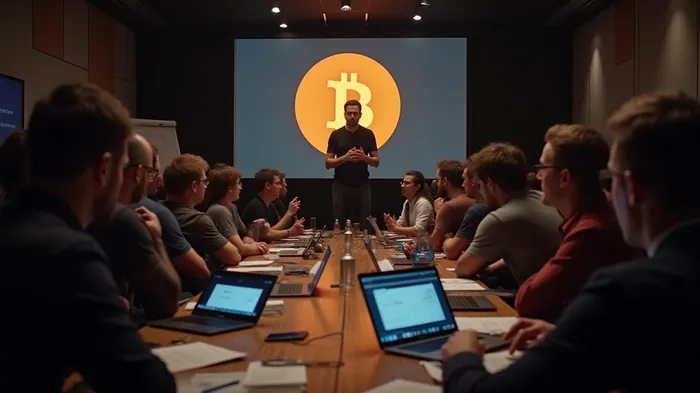Bitcoin Community Pushes Back Against Senator's Remarks
On May 23, 2025, Senator Gerard Rennick of Australia made a comment on social media that Bitcoin cannot be consumed, sparking a significant backlash from the cryptocurrency community. The senator's remarks were met with criticism from various quarters, who argued that his comments demonstrated a lack of understanding about the purpose and utility of Bitcoin.
The Australian Bitcoin Industry Body (ABIB) was quick to respond, asserting that Bitcoin, with a market value exceeding $2 trillion, is not intended to be consumed as food but rather held as a hedge against inflation. ABIBABIG-- highlighted that such misconceptions could lead to policies that hinder innovation and technological advancement. They emphasized that Bitcoin's value lies in its ability to provide financial security and protect against the devaluation of fiat currencies.
Bitcoin, the world's leading cryptocurrency, operates on a decentralized blockchain that facilitates secure transactions globally. The increasing market value of cryptocurrencies can be attributed to growing institutional involvement and public interest. However, Senator Rennick's comments seemed to downplay the economic significance of the cryptocurrency industry.
The Bitcoin community swiftly countered each of Rennick's claims. ABIB pointed out that Bitcoin's value appreciation over time makes it a superior store of value compared to fiat currencies, which are prone to inflation. They also noted the potential for cost savings by using cryptocurrencies instead of traditional financial services. "Although Bitcoin is not food, it can help secure more food in the future," ABIB stated, contrasting their view with Rennick's.
Social media users supported ABIB's stance, highlighting Bitcoin's role in financial security. One user explained that while Bitcoin cannot be consumed, its increasing value makes it an effective tool for wealth preservation. Another user encouraged Rennick to reconsider his position, noting that Bitcoin fosters innovation and economic growth.
Senator Rennick, from Queensland, has previously expressed skepticism about digital currencies, aligning with his broader efforts to support economic initiatives such as his proposal for a new party focused on public welfare. Critics argue that his rejection of Bitcoin overlooks its widespread global adoption and potential benefits.
This incident underscores the divide between traditional policymakers and cryptocurrency advocates. ABIB warned that a misunderstanding of Bitcoin could limit Australia's potential to lead in blockchain technology. The group urged the government to explore how Bitcoin could strengthen the country's economy and ensure its resilience against future challenges.
Globally, there is ongoing debate about the economic impact of Bitcoin. Proponents argue that it offers financial independence to regions with unstable currencies. The increasing number of Bitcoin transactions, often exceeding $30 billion daily, highlights its role as both a store of value and a medium of exchange.
Critics of Rennick's statement argue that it overlooks these facts, noting that Bitcoin's decentralized nature reduces dependence on major banks. ABIB cautioned that Australia could fall behind if the government does not fully explore Bitcoin's benefits, aiming to ensure Australians can navigate future economic challenges and disasters.
Senator Rennick's comments come at a time when Bitcoin adoption is growing worldwide. In some regions, Bitcoin is recognized as legal tender, and major companies like TeslaTSLA-- hold Bitcoin on their balance sheets. These developments highlight a gap between political views and financial advancements, contrasting with Rennick's opinion.
In response to the controversy, lawmakers are advocating for greater education on cryptocurrencies. ABIB emphasized the importance of understanding how Bitcoin operates to create effective policies. They warned that ignoring this growing asset class could alienate a significant segment of the population interested in digital assets.

Quickly understand the history and background of various well-known coins
Latest Articles
Stay ahead of the market.
Get curated U.S. market news, insights and key dates delivered to your inbox.



Comments
No comments yet